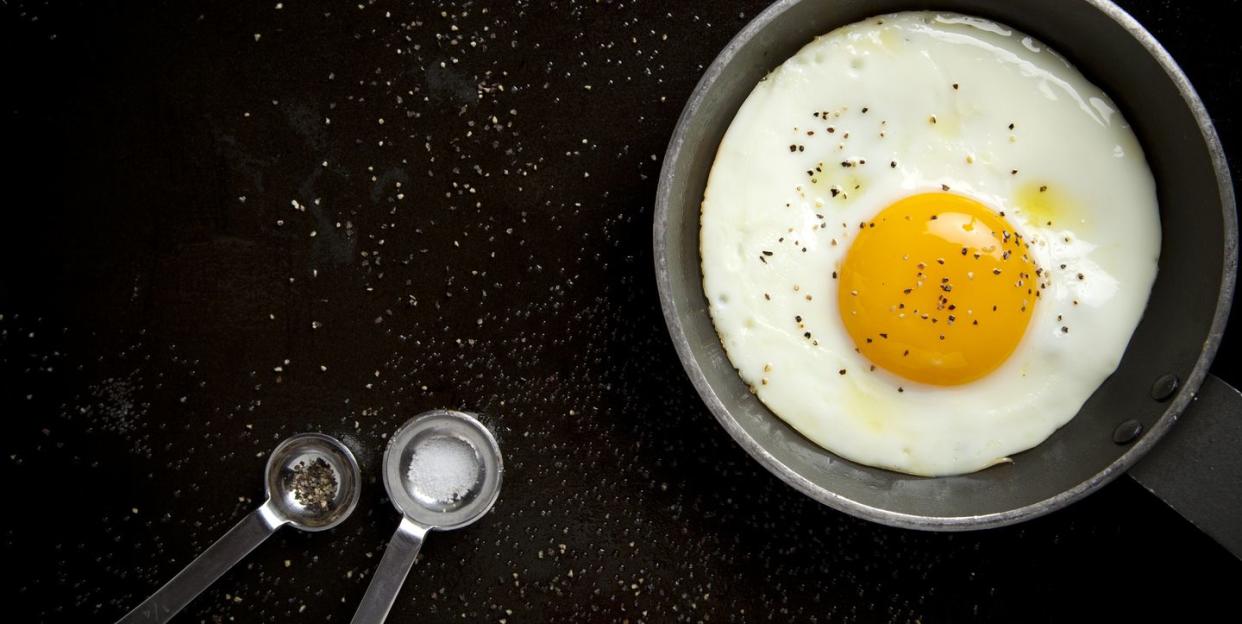Trendy Plant-Based Diets May Be Lacking a Vital Nutrient for Your Muscles and Brain

According to a new study published in BMJ Nutrition, Prevention & Health, the popularity of plant-based diets may be responsible for decreased choline intake worldwide.
Foods like beef, eggs, and milk are good animal sources of choline, while nuts, quinoa, and beans are good sources of plant-based choline.
Whichever type of diet you follow, make sure to get enough choline in it, since this nutrient helps improve brain and muscle function.
There’s been a lot of talk about plant-based diets lately, leaving many athletes wondering if ditching animal protein will improve their health and overall performance.
While previous research has found that adhering to a plant-based diet does have many benefits—everything from boosting your heart health to improving recovery time—it may have its drawbacks, too: People who eat plant-based diets may be at risk of missing out on some pretty essential ingredients, especially choline, according to research published in BMJ Nutrition, Prevention & Health.
In the study, researchers looked at data from numerous dietary surveys from North America, Europe, and Australia. They discovered that the majority of people living on these continents don’t get enough choline—a nutrient that helps your brain and nervous system regulate things like memory, mood, and muscle function, according to the National Institutes of Health (NIH).
“Some of these effects could benefit general health and wellbeing,” said Emma Derbyshire, Ph.D., study author and director of Nutritional Insight, a consulting firm that specializes in nutrition and biomedical science. Getting enough choline in your diet leads to reduced levels of an amino acid called homocysteine in your body, according to Derbyshire, which “have been linked to improved cardiovascular health.”
Specifically, Derbyshire found that in the U.S., only about 11 percent of adults get enough choline. In Europe, choline intake is also well below the recommended amount. And in Alberta, Canada, only 23 percent of pregnant women and 10 percent of breastfeeding women met the recommendation. (Choline is especially important for women who are pregnant and breastfeeding since choline is essential to fetal development.)
According to the NIH, adult men should get around 550 milligrams (mg) of choline per day and adult women should get around 425 mg per day. Additionally, pregnant women should get 450 mg per day and breastfeeding women should get 550 mg per day.
Derbyshire said that eggs, milk, and beef are prime sources of choline—which may be why people who adhere to a plant-based diet are deficient. According to the NIH, one hardboiled egg has 147 mg, 3 ounces (oz) of beef liver has 356 mg, 3 oz of 93 percent lean ground beef has 72 mg, and 1 cup of 1 percent milk has 43 mg.
[Build a killer midsection in the kitchen for powerful, effortless miles on the road with Eat for Abs!]
While those animal-based foods are rich sources of choline, you can get the nutrient if you are eating a plant-based diet, too. If you do, Derbyshire recommends making sure to incorporate the following foods into your meals:
Roasted soya nuts
Cruciferous vegetables (like broccoli and Brussels sprouts)
Baked beans
Mushrooms
Quinoa
Peanuts
For instance, 1/2 cup of Brussels sprouts have 32 mg of choline, 1/2 cup of broccoli has 31 mg, and 1/4 cup of peanuts have 24 mg.
The bottom line? While choline is found in many animal-based foods, it’s important for those adhering to a plant-based diet to monitor their choline intake. Getting enough choline will ensure your overall health and performance won’t take a hit.
You Might Also Like

